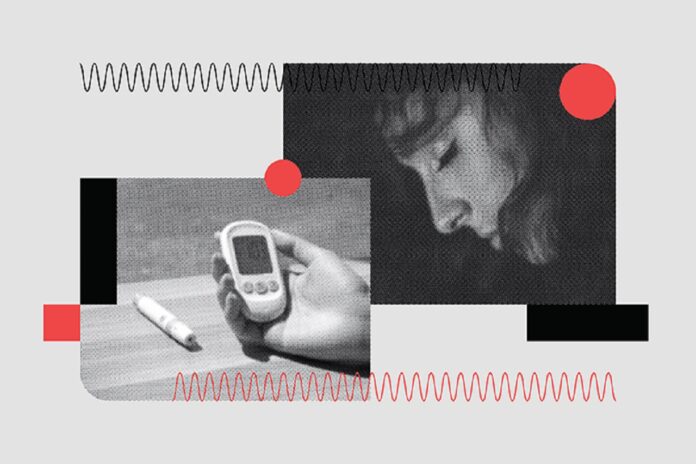A recent study has uncovered a fascinating link between deep-sleep brain waves and blood sugar control. The findings highlight the potential of using sleep monitoring as a predictive tool for assessing an individual’s ability to effectively regulate their blood sugar levels. This research offers valuable insights into the intricate connection between sleep quality and metabolic health, opening doors for potential interventions and improved management of conditions such as diabetes.
Researchers at the University of California, Berkeley, have made significant progress in understanding the link between quality sleep and diabetes risk. Their findings suggest that deep-sleep brain waves during the night regulate the body’s sensitivity to insulin, thereby improving blood sugar control the following day. This discovery sheds light on the mechanisms underlying the connection between sleep and metabolic health, bringing us closer to understanding why a lack of quality sleep increases the risk of diabetes.
Matthew Walker said, “These synchronized brain waves act like a finger that flicks the first domino to start an associated chain reaction from the brain, down to the heart, and then out to alter the body’s blood sugar regulation. In particular, the combination of two brain waves, called sleep spindles and slow waves, predict an increase in the body’s sensitivity to the hormone called insulin, which consequentially and beneficially lowers blood glucose levels.”
A recent study conducted by researchers at the University of California, Berkeley, has revealed that deep-sleep brain waves could serve as a potential marker for blood sugar control and offer therapeutic implications for individuals with high blood sugar or Type 2 diabetes. This breakthrough discovery uncovers a new mechanistic pathway. Deep-sleep brain waves may be a more accurate predictor of next-day blood sugar levels than traditional sleep metrics.
The study highlights the potential of utilizing sleep as a modifiable lifestyle factor for adjunct treatment. The findings were published in Cell Reports Medicine and built upon previous research that demonstrated the role of deep-sleep brain waves in enhancing learning and memory retention in the hippocampus.
Recent research conducted by UC Berkeley has unveiled a previously unknown role for deep-sleep brain waves in blood sugar management. Building on a previous rodent study, the researchers analyzed sleep data from 600 individuals. They found that the coupling of specific deep-sleep brain waves predicted next-day glucose control, even after accounting for other factors such as age, gender, and sleep duration. The study indicates that these brain oscillations’ electrophysiological quality and coordination during deep sleep play a unique role in blood sugar regulation.
Additionally, the team identified a descending pathway that explains how these deep-sleep brain waves influence blood glucose control by triggering a shift to the parasympathetic nervous system, resulting in a more relaxed state. These findings offer valuable insights into the connection between sleep, brain waves, and blood sugar management.
The team focused on the final step of blood sugar balance. They found that deep sleep activates the calming branch of the nervous system, leading to increased sensitivity to insulin. This helps prevent blood sugar spikes, crucial for individuals managing hyperglycemia and Type 2 diabetes. The researchers confirmed these findings with a separate group of 1,900 participants.
“We gained more confidence in the results after replicating them with a different group,” said Walker. However, he remains skeptical and awaits further replication by others. The research is exciting due to its potential clinical significance in the future. Current diabetes treatments and lifestyle changes can be challenging for patients, but sleep is a relatively easy experience. While sleep alone is not a cure, the discovery of technologies that can modify brain waves during deep sleep offers hope for better blood sugar management.
Journal Reference:
- Raphael Vallat, Vyoma D. Shah et al., Coordinated human sleeping brainwaves map peripheral body glucose homeostasis. Cell Reports Medicine. DOI:10.1016/j.xcrm.2023.101100.
